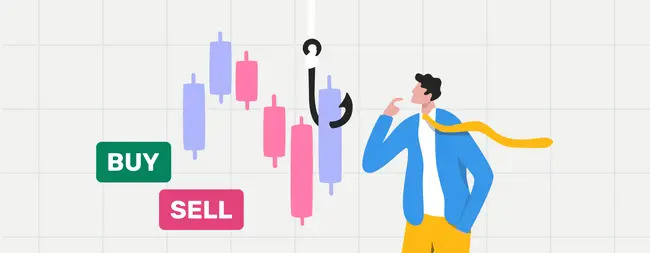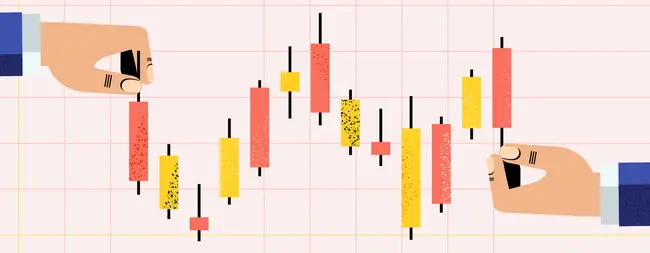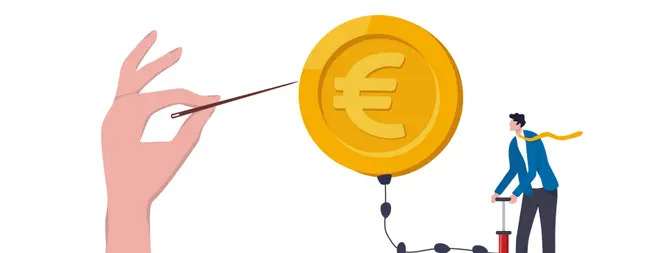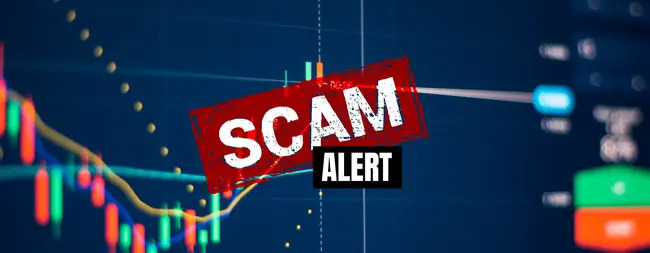
Forex Trading Scams: Red Flags and How To Protect Yourself
The allure of making quick profits in the world of forex trading has drawn countless individuals into this financial market — and where there are investors, there are scammers.
Forex, short for foreign exchange, offers the potential for substantial returns on investments, but it also harbors risks, including the threat of numerous different types of scams.
Forex trading scams are on the rise, preying on the uninformed and the inexperienced looking for a quick return on investment.
In this blog post, we will explore some common red flags associated with different forex trading scams and provide valuable insights on how to protect yourself from falling victim to them.
The Forex Market: A Brief Overview
Before delving into the specifics of forex scams, let’s start by ensuring you have a basic understanding of the forex market.
With a daily trading volume exceeding $6 trillion, it is the largest and most liquid financial market globally.
In essence, forex trading involves buying one currency while simultaneously selling another, speculating on the exchange rate fluctuations between them.
While plenty of people successfully make money on the forex market, it is considered a more high-risk investment than standard stock trading, and that’s without even taking into account the many forex trading scams that are out there.
Common Forex Trading Scams
Signal Sellers
Signal sellers are individuals or companies that claim to provide trading signals, or tips, that can help you make profitable trades. They often promise high success rates and guaranteed profits for a fee.
However, many of these signal services are fraudulent, and their signals can lead to significant losses.
Red Flags and How To Avoid Them: Beware of services that promise unrealistic returns with no risk or losses. Legitimate trading involves risks, and no one can guarantee profits consistently.
Ponzi Schemes
Ponzi schemes in the forex market also involve promising high returns with little or no risk. Scammers attract investors to these schemes by claiming to use their funds for forex trading, essentially turning their money into quick profits that they promise to return to the investors.
Scammers pay returns to early investors using the capital of newer investors, creating a fake appearance of profitability (like a pyramid scheme). Eventually, when new investments dry up, the scheme collapses, and many unsuspecting, eager investors lose their money.
Red Flags and How To Avoid Them: Be skeptical of investment opportunities that promise “guaranteed” or excessively high returns with little to no risk. Conduct due diligence and research the company or individual offering the investment.
Unregulated Brokers
While there are legitimate forex brokers out there, some forex brokers operate without proper regulation, making them fertile ground for scams. Unregulated brokers can manipulate prices, refuse withdrawals, or even disappear altogether with investors’ funds.
Red Flags and How To Avoid Them: Always choose a reputable and regulated forex broker. Research the broker’s regulatory status and verify their credentials with relevant authorities.
Robot or Automated Trading Scams
Scammers often promote automated trading systems or robots that claim to make profitable trades on your behalf. These systems may be sold with impressive backtest “results,” but they often fail to deliver in live trading conditions.
Red Flags and How To Avoid Them: Be cautious of systems that promise effortless profits without any human involvement. Thoroughly research and test any automated trading software before committing your capital.
Phony Investment Courses
Some scammers offer expensive forex trading courses, promising to teach you the secrets of successful trading. These courses often lack valuable content and are designed solely to generate income for the fraudsters.
Red Flags and How To Avoid Them: Investigate the credentials of the course provider and seek reviews from previous students. Legitimate education should be transparent and backed by solid testimonials.
How To Protect Yourself from Forex Trading Scams
Now that we’ve identified common forex trading scams, along with their red flags and how to avoid them, let’s explore some more general ways to protect yourself from falling victim to these schemes.
Education is Key
Invest in your own knowledge by learning about the forex market in depth. Make sure you understand the fundamentals of trading, technical and fundamental analysis, risk management, and trading strategies. A well-informed trader is less likely to be deceived.
Choose a Regulated Broker
Select a forex broker that is regulated by a reputable financial authority in your region. Regulatory bodies help ensure that brokers adhere to strict standards and follow ethical practices.
Beware of Unrealistic Promises
Be skeptical of any opportunity that promises guaranteed profits with little or no risk. Remember that trading involves risk, and there are no guarantees of profit — if it sounds too good to be true, it probably is!
Verify Information
Research and verify any forex-related information presented to you. Check the background and track record of any individual or company offering forex services or investment opportunities.
Use Caution with Automated Systems
If you are considering using automated trading software or robots, thoroughly research them and read legitimate third-party opinions and reviews. Beware of systems that promise overnight wealth. When in doubt, it’s best to avoid forex robot trading platforms altogether.
Avoid Pressure Tactics
Scammers often use high-pressure tactics to rush you into making decisions. Take your time to evaluate any opportunity or investment, and don’t give into your emotions when it comes to trading forex (or anything, for that matter).
Stay Informed
Keep up to date with the latest news and developments in the forex market. Being aware of market conditions and trends can help you make informed decisions and avoid potential scams.
Conclusion
While the forex market offers substantial opportunities for profit, it is not without its risks, including the threat of scams.
By being vigilant, educating yourself, and following the guidelines mentioned in this article, you can protect yourself from falling victim to forex trading scams.
Remember that in the world of forex trading, the most valuable asset you have is your knowledge and ability to make informed decisions.















